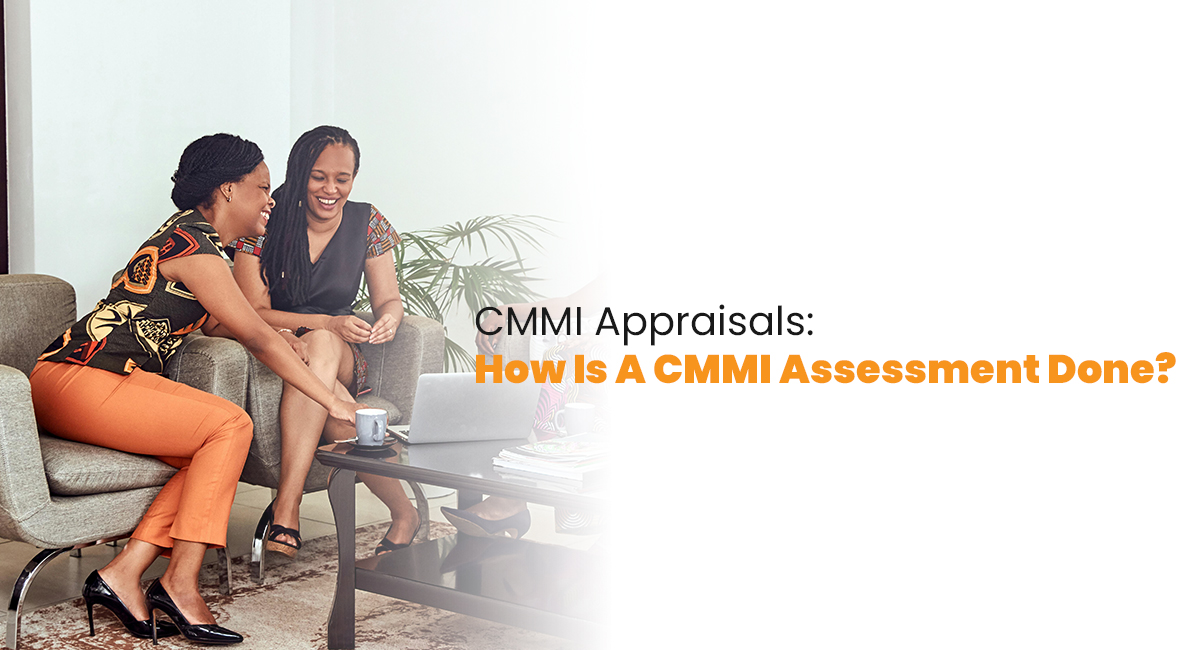CMMI Appraisals: How Is A CMMI Assessment Done?
The capability maturity model integration was designed for maintaining process improvement. The CMMI assessment is a critical factor in determining level five success. It is often called the appraisal program as it assists the management team in inspecting and determining if the efficacy level of the workers have increased according to their expectations. The assessment is not a critical analysis, though it requires experience, a professional demeanor, an eye for detail, and adept industry knowledge. If not done under professional support and supervision, the process gets exhausting, and stakeholders will eventually lose their interest in the overall process.
One of the usual questions and queries among small companies is “how the assessment is done and is it too difficult to process?” Under the right guidance, the process will be smooth and will meet your time requirements. The right mechanism, checklist, and most importantly, experience matter for a productive assessment.
For small and medium-sized companies, the process may seem hectic. With ideal support, it is easy to comply with the regulatory terms and conditions. The following blog will briefly outline the process.
Why is CMMI Assessment often called the CMMI Appraisal?
The assessment is a detailed process of determining if your trained team of stakeholders has achieved the right level of competency or not. It is therefore a thorough appraisal method for reviewing the existing employees’ performance capability after providing them with training. Every appraisal requires detailed planning. Companies should set the context and determine the scope before proceeding with the assessment. A CMMI appraisal is defined by three components, which are:
• Expected – For the specific as well as generic practices
• Required – For the specific as well as generic goals
• Informative – For the specific as well as generic sub-products and sub-practices
For a smooth assessment, two documents must be followed, which are:
• ARC (Appraisal Requirements for CMMI) – It sets the criteria for all three classes of assessment and appraisal processes. The rules help to comply with fundamental compliance.
• SCAMPI (Standard CMMI Appraisal Method for Process Improvement) – This is a Class A, B, and C appraisal method manual. It is widely used among organizations and regarded as the most relevant for the system.
SCAMPI
Class A
• It is for those companies who have invested in different improvement procedures in order to meet all the criteria of the CMMI. The following outcomes are expected when Class A SCAMPI is performed.
• Ratings for maturity levels
• Determining the strength and weaknesses of the management system
• Consensus regarding the process issues
• An appraisal database that helps to monitor process improvement and record the finding to use in contingency programs for appraisals.
Class B
This process is designed to help companies determine progress towards a particular level of CMMI. Class B provides reports on the effectiveness of the evaluated practices done in the class A process. To learn the status of your software program, this appraisal method is much more appreciated. The following outcomes are expected when Class B SCAMPI is performed.
• Findings on the strength and weakness of your company
• Clear indications of the productive power of the evaluated practices
• Consensus regarding the process issues
• FIDO database for timely monitoring the process improvement
Class C
It is a shorter appraisal process that is primarily considered in order to provide a more flexible approach to the entire program. It is conducted to address different organizational needs. You can enjoy the following benefits by following the Class C protocol.
• Successful inspection of process implementation
• Selection of supplier
• Detecting and determining organizational readiness for the SCAMPI A
• Evaluate the adequacy of the implemented process.
• Quick gap analysis
• Consensus regarding the process issues
• SWOT (Strengths, weaknesses, opportunities, and threats)
• FIDO database for timely monitoring the process improvement
This crucial and exhausting process should be done under professional monitoring. ISO consultants are certified audit specialists who have relevant industry experience. Their assistance plays a crucial role in accomplishing 100% compliance.
To take all these steps and experience any failure along the way contact us Compliancehelp Consulting LLC. We are a premier consultancy firm if you are looking for support and guidance in achieving any ISO certification. Our customs solutions are ready to guide you through the exhausting CMMI assessment processwithout any difficulties. Get the right to help in choosing the right assessment. Click here to know more!

